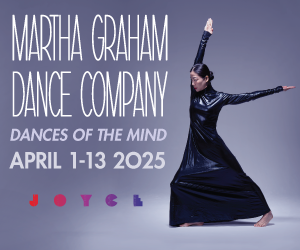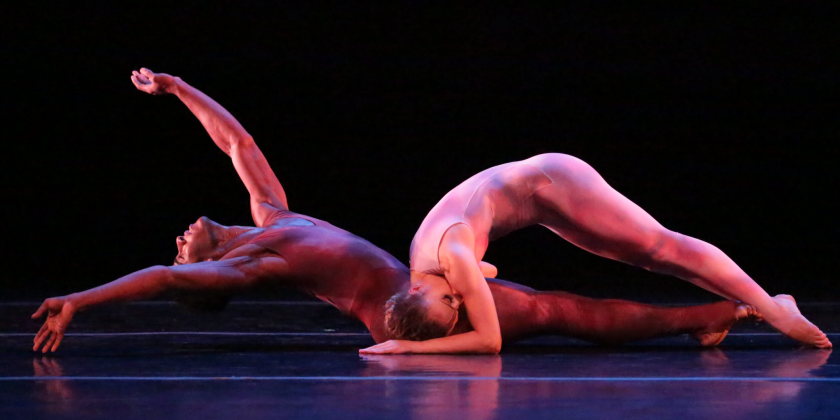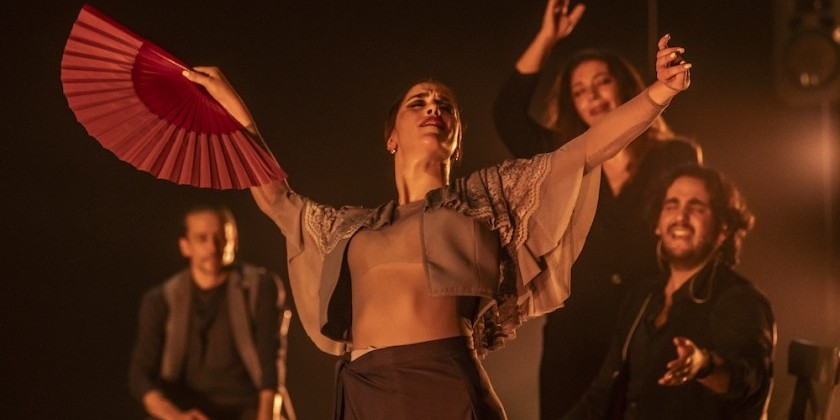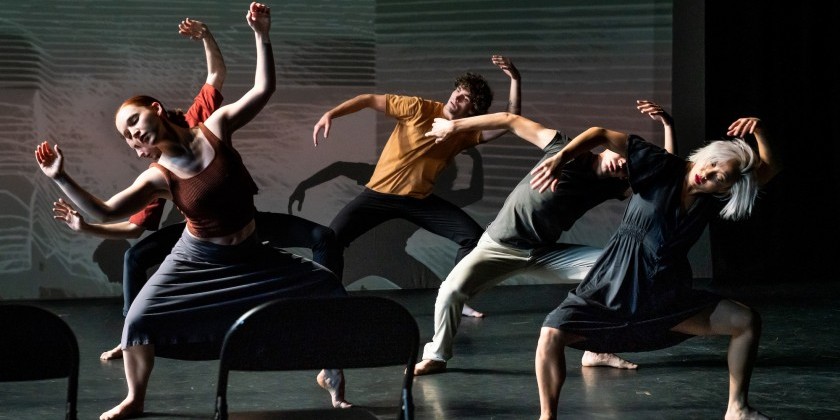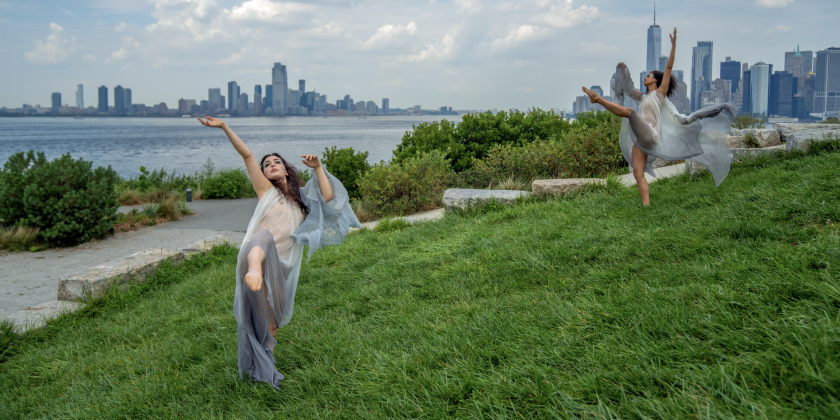IMPRESSIONS: "Marco Spada" Screening by The Bolshoi Ballet at Village East Cinema

Featuring David Hallberg
Screening at Village East Cinema
Choreography, Sets, and Costumes by Pierre Lacotte
Music by Daniel-François-Esprit Auber
Performances by Semyon Chudin, David Hallberg, Evgenia Obraztsova, Andrei Sitnikov, Olga Smirnova, Igor Tsvirko, and the Bolshoi corps de ballet
The Bolshoi Ballet’s filmed version of “Marco Spada” (which took place in Moscow on March 30) epitomizes all that is magnificent — and all that can be nonsensical — about ballet. Presented by Pathé Live, the screening was held at Village East Cinema and featured a pre-talk by dance historian David Vaughan and dance writer Joan Acocella. The event was catnip for balletomanes.
The Bolshoi is a very fine company, and “Marco Spada” showcases their sophistication and proficiency. Choreographed by Pierre Lacotte (who also designed the sumptuous sets and costumes), the stage swarms with well-trained, fresh-faced dancers. Video can be an unforgiving medium, particularly for ballet with its emphasis on geometric spacing and precise technique, yet this film proves the high caliber of the Bolshoi’s corps de ballet. Performers hit their marks, point their toes, and embellish the scenarios with aplomb. More importantly, they do so with joy.
The original “Marco Spada,” which premiered in 1857, never found much of an audience. It relied heavily on mime and, although billed as a comedy, culminated with the protagonist’s death. Lacotte, who kept the ending but ditched most of the mime, recreated the ballet in 1981 for Rudolf Nureyev. As Acocella points out, the imprint of this legendary dancer is unmistakable. The folk dancing-inflected choreography — abounding with beated jumps, knotty pirouette sequences, and streaking chains of coupé jetés en tournant — demands rigor and deftness. Lacotte maintains this punishing pace for all three acts, giving the dancers ample opportunity to display their exceptional skills.

The star of the evening is David Hallberg, who plays the titular Marco Spada. Hallberg made history in 2011 as the first American to be granted principal status with the Bolshoi. Consistently sleek and pure in his presentation, he looks to have gained a theatrical élan since joining the company. Marco Spada is a man with a dual nature: he’s a vile bandit and a doting father. Seemingly delighted at the opportunity to shed his princely image, Hallberg’s eyes glitter maliciously when he robs unsuspecting victims, yet the pas de deux with his daughter Angela (the phenomenal Evgenia Obraztsova) brims with tender affection.
These excellent performances cannot save “Marco Spada” from its sheer inanity. The plot, which depends heavily on chance encounters, is ridiculous and incomprehensible. Much to the frustration of the Governor of Rome, the outlaw Marco Spada has been hiding in plain sight. Lacotte demonstrates Spada’s aptitude for thievery by placing the character behind an absolutely enormous blanket held by two of Spada’s cronies. Hiding behind this cover, Spada and his accomplices (who go unnoticed by everyone in a bustling village square) swipe jewelry and steal money. It’s unclear whether Lacotte uses this ham-handed effect for broad comedy or to foreshadow Spada’s ultimate downfall.
Spada, unlike Robin Hood, keeps his bounty and uses it to spoil his daughter. Eventually, his deceit is discovered. When mortally wounded in a raid gone wrong, he reveals (in between some superb dancing and melodramatic clutching of his stomach) that Angela is not his daughter. This lie allows her to marry her sweetheart, Count Frederici. The convoluted plot also includes another pair of lovebirds, a foolish friar, and huge assemblies of dancers who appear and disappear for no discernible reason beyond pleasantly filling out the music. Even with its faults, “Marco Spada” could succeed as a screwball comedy, but its finale, featuring a lifeless Spada carried out as his stricken comrades look on, takes such a sour turn that it is impossible to reconcile with the preceding madcap antics.
Ballet can require us to stretch our imaginations, to accept that a prince can fall in love with an enchanted swan or that a scorned girl can be reincarnated as a supernatural Wili. Often, remarkable performances override any problems posed by the narrative. “Marco Spada,” while an outstanding vehicle to demonstrate the Bolshoi’s prowess and build excitement for their New York engagement in July, is just too silly to take seriously.




